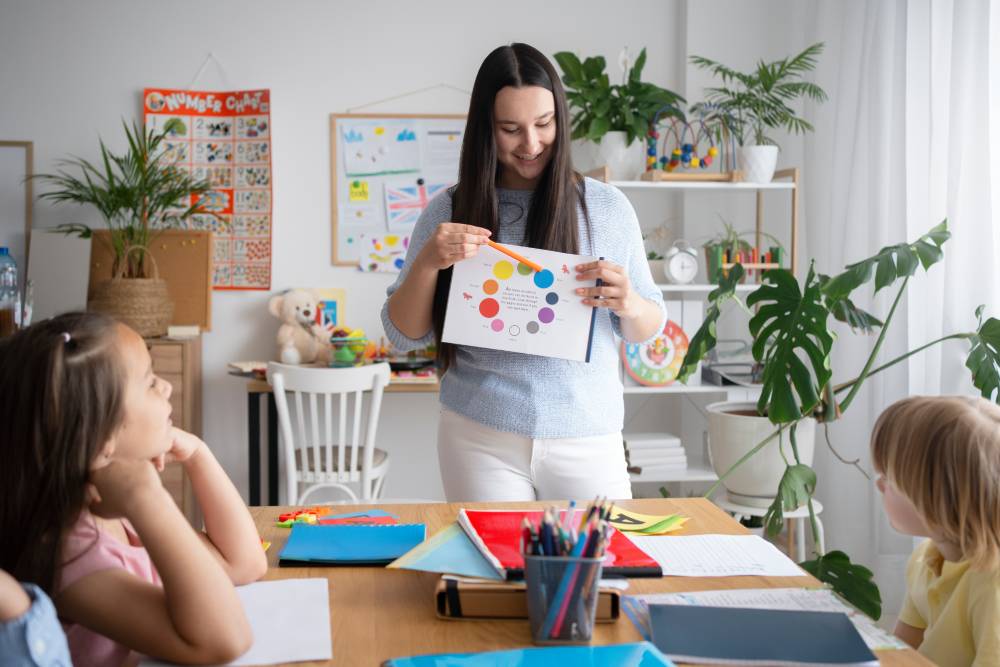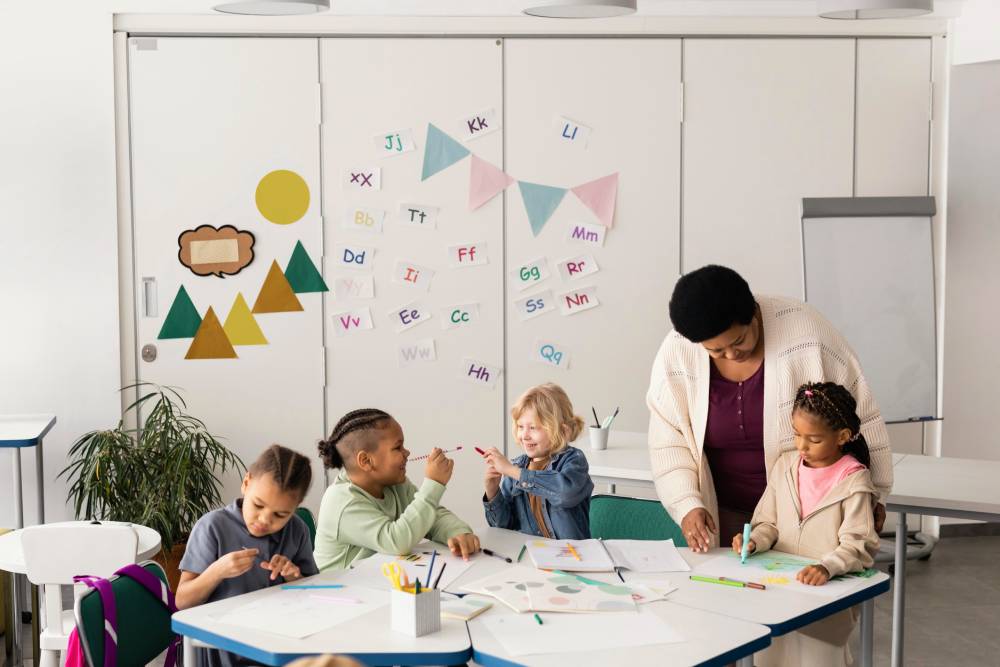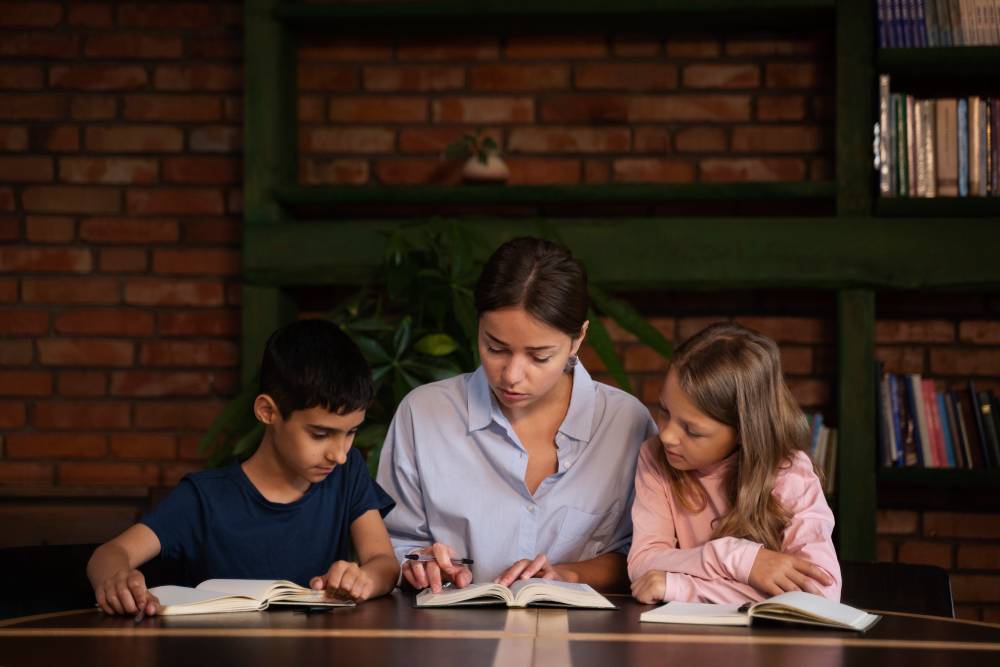Communication is a fundamental skill that impacts nearly every aspect of a child’s life. From learning at school to interacting with peers, effective communication shapes how children develop socially, emotionally, and intellectually. Therefore, communication skills training for children is crucial in helping them navigate the world with confidence. In addition, this therapy can help children understand how to communicate effectively, resolve conflicts, and build positive relationships with others. Moreover, it supports emotional regulation, allowing children to express their feelings constructively. Ultimately, strong communication skills lay the foundation for a child’s overall well-being and success in various environments.
Why Communication Skills Matter for Children
Communication is not just about speaking; it encompasses listening, understanding, and responding. Effective communication enables children to express their needs, ask questions, share feelings, and engage with others. It also plays a significant role in emotional regulation, problem-solving, and building relationships. Without strong communication skills, children might struggle to connect with peers, leading to frustration, isolation, and behavioral challenges.
Communication skills training for children aims to address these challenges by providing strategies that enhance both verbal and non-verbal communication. Children learn how to use words, gestures, and facial expressions to interact meaningfully with others. This can significantly improve their ability to function in social settings and contribute positively to their learning environment.
The Role of Social Skills in Child Development
Social skills development for kids is closely linked to communication. Social skills encompass a range of behaviors that children need to interact successfully with others. These include making eye contact, taking turns in conversation, listening attentively, and understanding social cues. Without these skills, children may find it difficult to engage with peers, teachers, and family members.
When children lack social skills, they often feel misunderstood or left out. Consequently, this can lead to anxiety, frustration, and even withdrawal from social interactions. As a result, they may struggle to connect with others, which further reinforces feelings of isolation.
On the other hand, when children receive proper communication skills training for children, they can bridge this gap. This training teaches kids how to interact confidently and appropriately in various social situations. Over time, as they practice these skills, they develop stronger relationships, experience less social isolation, and feel more engaged in their environment. Additionally, they become more comfortable in new situations and are better equipped to handle challenges.
Moreover, these enhanced social skills not only benefit relationships with peers but also improve interactions with teachers and family members. Therefore, effective communication and social skills development for kids play a crucial role in promoting emotional well-being and fostering positive connections.
Benefits of Communication Skills Training for Children
1. Improved Social Interactions
Communication skills training enhances a child’s ability to engage with peers, family members, and adults. Through this training, children learn how to take turns in conversation, listen actively, and express themselves clearly. These skills are crucial in forming meaningful friendships and building strong social connections.
Effective communication also helps children understand social cues, such as body language, tone of voice, and facial expressions. This improves their ability to respond appropriately to others, which fosters healthy relationships and reduces social misunderstandings.
2. Enhanced Academic Performance
Children with strong communication skills often perform better academically. In school, they can articulate their thoughts, ask questions, and contribute to discussions with confidence. These abilities enhance their participation in class, leading to a deeper understanding of the material.
Moreover, effective communication helps children work collaboratively with classmates during group projects, where teamwork and clear expression are essential. By improving their communication skills, children develop better problem-solving abilities and critical thinking skills.
3. Boosted Self-Confidence
When children have the tools to communicate effectively, they feel more confident in social situations. Communication skills training provides children with the vocabulary and strategies to express their feelings and thoughts clearly. As they practice these skills, they become more self-assured and comfortable interacting with others.
For children who struggle with social anxiety or shyness, this training can be especially beneficial. Over time, they gain the confidence to approach new situations and initiate conversations, reducing the fear of rejection or failure.
4. Emotional Regulation
Strong communication skills are essential for emotional regulation. When children can express their feelings in a constructive way, they are better equipped to manage their emotions. Social skills development for kids often includes learning how to name their emotions, recognize how others might feel, and use coping strategies to handle frustration or anger.
Communication skills training helps children articulate their needs, set boundaries, and assert themselves respectfully. These skills reduce impulsivity and aggression, which can improve behavior both at home and in school settings.
Key Techniques in Communication Skills Training
There are several techniques used in communication skills training for children that foster effective learning. Some of the key strategies include:
- Role-Playing
Role-playing is an interactive and engaging technique used to teach communication skills. By acting out different scenarios, children learn how to handle various social situations. For example, a child might practice introducing themselves to a peer, asking for help, or making a request politely. This hands-on approach allows children to internalize communication strategies, boosting their confidence in real-life situations. - Modeling
Modeling involves demonstrating appropriate communication behaviors for children to imitate. Therapists, teachers, and parents can model positive interactions by engaging in clear, respectful conversations. When children observe these behaviors, they can easily apply them in their own interactions. Over time, through repetition and reinforcement, children start adopting these behaviors as part of their communication style. - Visual Supports
For younger children or those with learning differences, visual supports can be an effective tool in communication skills training. These supports might include picture charts, social stories, or visual schedules that help children understand and organize social expectations. Visual cues make abstract concepts more tangible, making it easier for children to practice communication in a structured way. - Positive Reinforcement
Positive reinforcement encourages children to use their communication skills in real-life situations. By rewarding positive communication behaviors, such as listening attentively or using polite language, children are more likely to repeat those behaviors. Rewards can range from verbal praise to tangible incentives, depending on the child’s preferences and motivations. This reinforcement strengthens the child’s ability to communicate effectively.


The Role of Parents and Teachers in Communication Skills Development
Parents and teachers play a crucial role in supporting communication skills development. At home, parents can create a supportive environment by engaging in conversations, reading together, and encouraging children to express their feelings. This open dialogue fosters trust, helping children feel heard and validated. Consequently, they begin to understand the importance of clear, respectful communication. Furthermore, parents can model effective communication by actively listening, asking open-ended questions, and providing positive reinforcement.
In the classroom, teachers can integrate communication skill-building activities into the curriculum. For instance, they can promote cooperative group work, encourage active listening, and facilitate respectful discussions. These strategies provide children with regular opportunities to practice their communication skills in a structured and supportive environment. Additionally, teachers can create a safe space where children feel comfortable expressing their thoughts and ideas. This, in turn, enhances their confidence and encourages them to communicate more effectively.
Collaboration between parents, teachers, and therapists ensures that children receive consistent guidance in developing these essential skills. As a result, children benefit from a unified approach, reinforcing what they learn in therapy at home and school. Through this consistent support, children are better equipped to develop strong communication skills, which will serve them well throughout their lives.
Conclusion
Effective communication is the foundation for a child’s success, both socially and academically. Communication skills training for children supports the development of social, emotional, and cognitive abilities. By improving their ability to express themselves, children can build stronger relationships, navigate social challenges, and succeed in various environments.
Whether through role-playing, modeling, or visual supports, communication skills training offers children the tools they need to thrive. Parents, teachers, and therapists all have a role in fostering these skills, ensuring that children grow into confident, capable communicators. At Twinkle Therapies, we provide tailored programs to help children develop their communication abilities, empowering them to interact meaningfully and successfully.
If you’re looking for professional support to help your child develop strong communication skills, contact Twinkle Therapies today. Together, we can ensure your child reaches their full potential.
